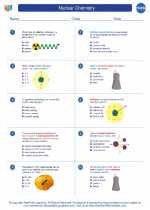Ocean
The ocean is a vast body of saltwater that covers more than 70% of the Earth's surface. It plays a crucial role in regulating the planet's climate and supporting a wide variety of marine life.
Ocean Composition
The ocean is composed of saltwater, primarily made up of water and various dissolved salts such as sodium and chloride. It also contains gases, organic matter, and minerals.
Ocean Zones
The ocean can be divided into several zones based on depth and distance from the shore. These include the intertidal zone, neritic zone, oceanic zone, and benthic zone. Each zone has its own unique characteristics and supports different forms of marine life.
Ocean Currents
Ocean currents are continuous, directed movements of seawater generated by forces such as the wind, the rotation of the Earth, and differences in water density. They play a crucial role in transporting heat and nutrients around the globe, influencing climate patterns and marine ecosystems.
Ocean Conservation
Due to human activities such as overfishing, pollution, and climate change, the ocean faces numerous threats. Conservation efforts are essential to protect marine habitats, reduce pollution, and sustainably manage marine resources for future generations.
Study Guide
For a comprehensive understanding of the ocean, it is important to study its physical, chemical, and biological aspects. Key topics to focus on include oceanography, marine biology, ocean currents, and the impact of human activities on the ocean environment.
Key terms to be familiar with include: tides, salinity, coral reefs, phytoplankton, zooplankton, upwelling, and marine biodiversity.
It is also beneficial to explore the role of the ocean in regulating the Earth's climate, its economic significance (e.g., fisheries, shipping, and tourism), and the importance of international cooperation in ocean conservation and management.
[Ocean] Related Worksheets and Study Guides:
.◂Chemistry Worksheets and Study Guides High School. Nuclear Chemistry

 Worksheet/Answer key
Worksheet/Answer key
 Worksheet/Answer key
Worksheet/Answer key
